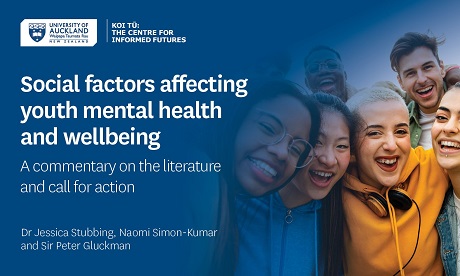Four key factors negatively affect youth mental health, a new Auckland University study has found.
The study investigated over 100 reports for the Mental Health and Wellbeing Commission study.
Researchers found young people’s mental health suffers mainly from:
- an uncertain future due to inherited social and economic challenges and climate change
- racism and discrimination
- social media and online safety
- family wellbeing and an inter-generational disconnect.
NewsHub spoke to a few young people whose responses confirmed the report’s findings.
They spoke of modern society’s stresses, anxiety and social isolation.
“The cost of living’s really going up and it’s kind of getting out of hand,” one said.
“Insecurities, climate change, a lot of political changes, people feel unsafe,” said another.
“Social media and the internet connectivity – it can be hard to break away,” a third said.
“Things lately, since Covid, feels a bit more isolated,” a fourth added.
No quick fix
While there is no quick way of improving youth mental health, the researchers say there are some things we could do better.
The best way to do this is to incorporate young people’s voices into mental health policy. This is necessary to understanding and addressing the poor statistics of our youth mental health.
According to Auckland University research fellow Dr Jess Stubbing, listening to young people is critical.
“If we really want as a country to have a sustainable mental health strategy that is really effective for addressing this challenge of rising rates, we need to be listening to young people and making their voice the heart of what we’re doing and our policy.
“If we aren’t setting them up well now to cope with mental health challenges and come through a tough period of time, we’re failing future generations of this nation and robbing ourselves of a much brighter future.”
Mental Health and Wellbeing Commission CEO Karen Orsborn is positive about the report.
“The more we understand about those drivers of distress and wellbeing for young people, the more we can target our actions in terms of prevention, education and addressing those futures,” she said.
Source
Additional readingNews category: New Zealand.




